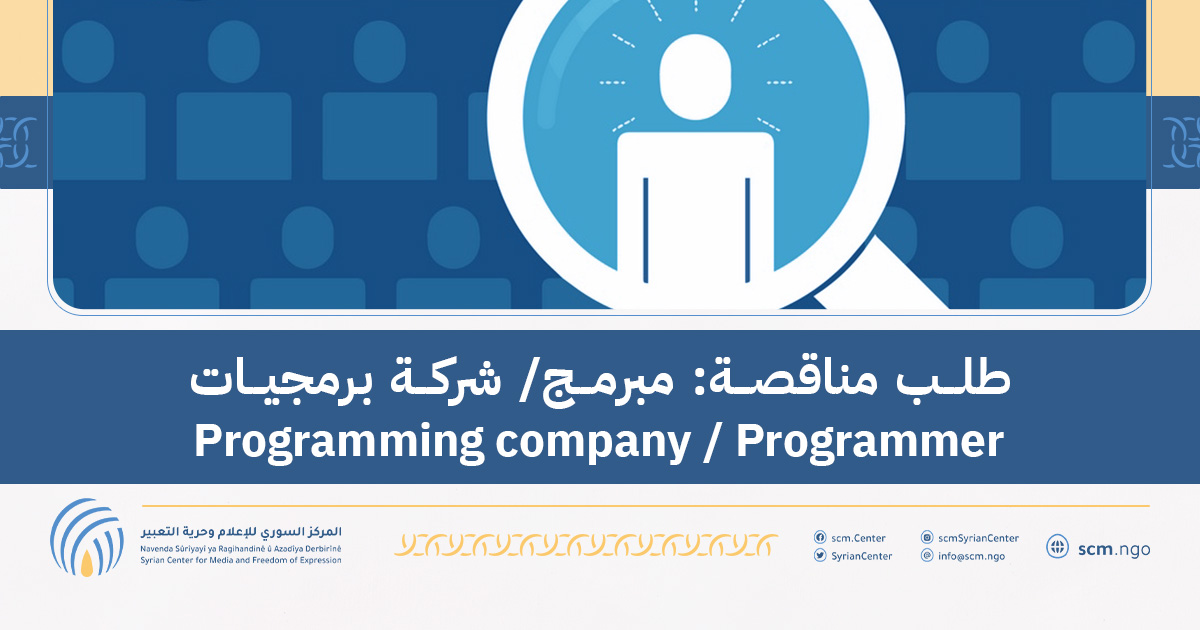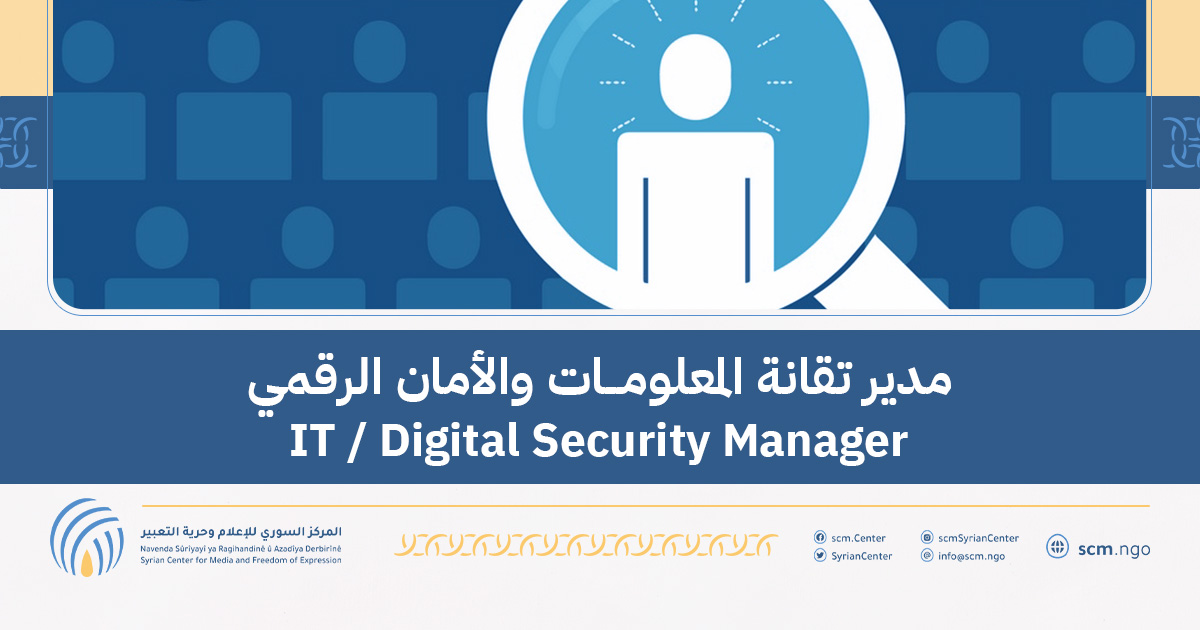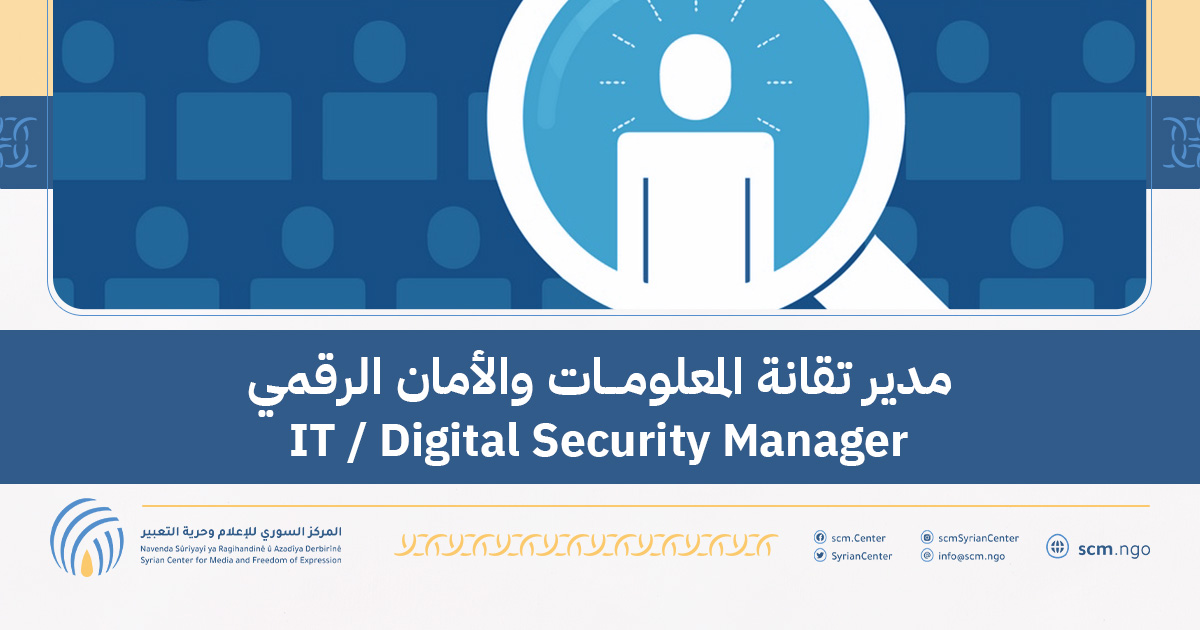On Monday, 12-12-2011, the seventh magistrate in Damascus, on behalf of the third, interrogated the Syrian blogger Razan Ghazzawi concerning the charges that have been leveled at her by the office of public prosecution, which decided to annex her file to that of the case against the journalists, bloggers and activists Hanadi Zahlout, ‘asem Hamsho, malak al-Shanawati, Amr al-as’ad, Shadi abu al-Fakhr, Rudi ‘Othman, Soroor Ali Sheikh Moos, and Joan Ayo; all of whom have been accused of establishing “the coordination of the districts of Damascus.” Thus, she was charged with the same charges that have been leveled at them according to the following articles:
– Article 306: it criminalizes joining an organization that aims to change the economic and social entity of the state, or the basic conditions of the society.
– Article 285: it criminalizes the person who, in times of war or the threat thereof, attempts to weaken the national sentiment or ignite racist or sectarian strife.
– Article 286: it criminalizes the person who knowingly, under the same, previously-mentioned conditions, spreads reports of false or exaggerated news, leading to weakening the morale of the nation.
– Article 335: it criminalizes the person who is in a suspicious meeting that does not conform to the norms or nature of private meetings, be it because of its aim, the reasons behind it, the number of people invited to or organizing it and the place where it is held. This article also criminalizes the person who publically incites unrest, sings in support of riots, shows signs thereof in situations that cause disturbance to the general security, or starts any other riot in a public place or in any space accessible to the public.
– Article 336: it criminalizes every gathering or congregation in public streets or spaces accessible to the public for the sake of causing riots.
Blogger Razan Ghazzawi has denied all the charges leveled at her and her relation to the aforementioned case (of the other activists) and stated that her general activity is limited to working with the Syrian Center for Media and Freedom of Expression, in addition to freely expressing her opinion as a Syrian citizen through writing in her personal blog, which is a right guaranteed by the Syrian constitution. The magistrate has issued a bill of detention and transfer to the Adraa women’s prison in Damascus for the sake of further interrogation into her case.
The lawyers Khalil Ma’touq and Michel Shammas were present during the interrogation as representatives of the defense. Ma’touq has pointed out that “Blogger Razan Ghazzawi did not commit any crime that is punishable by Syrian law, and all her activities are constitutional rights granted to her according to the Syrian constitution and the treaties and commitments that the Syrian government has signed. He further added that her detention is unconstitutional and even if she committed any of the “crimes” she has been charged with, she is supposed to be released and tried loose. It is time that the Syrian government stops harassing bloggers and activists in Syria.
Blogger Razan Ghazzawi was detained by the immigration police at the Jordanian-Syrian border on Sunday 4-12-2011, as she was heading to Jordan to attend a conference for press freedom in the Arab world. She was first jailed in Ghreeb Prison in Daraa until Wednesday 7-12-2011 and was then transferred to the Adraa women’s prison in Damascus. On the evening of that same day, she was transferred to the political security branch in Damascus for interrogation. On Saturday 11-12-2011, she was tried in court, but not in front of the third magistrate, who was on official holiday.
The Syrian Center for Media and Freedom of Expression reiterates its call for the instant and unconditional release of the colleague and blogger Razan Ghazzawi, the stoppage of her trial and cancellation of all the charges leveled at her, which are fabricated and have no basis in reality. Furthermore, the Center accentuates the fact that the apparatuses of the Syrian Republic are supposed to be the protectors and guarantors, and not the suppressors, of the citizens’ rights to freedom of expression.



